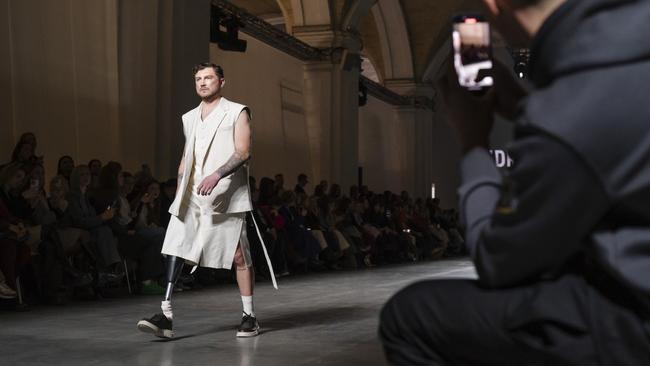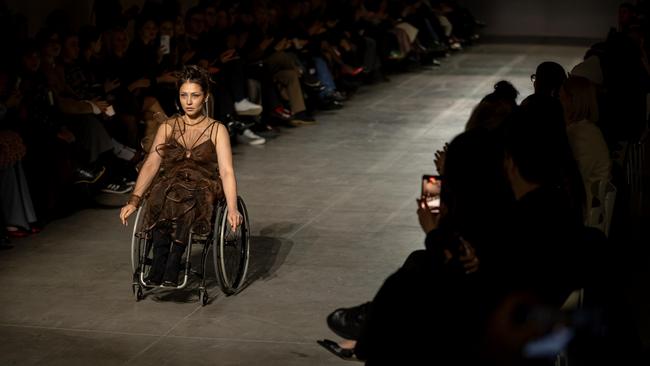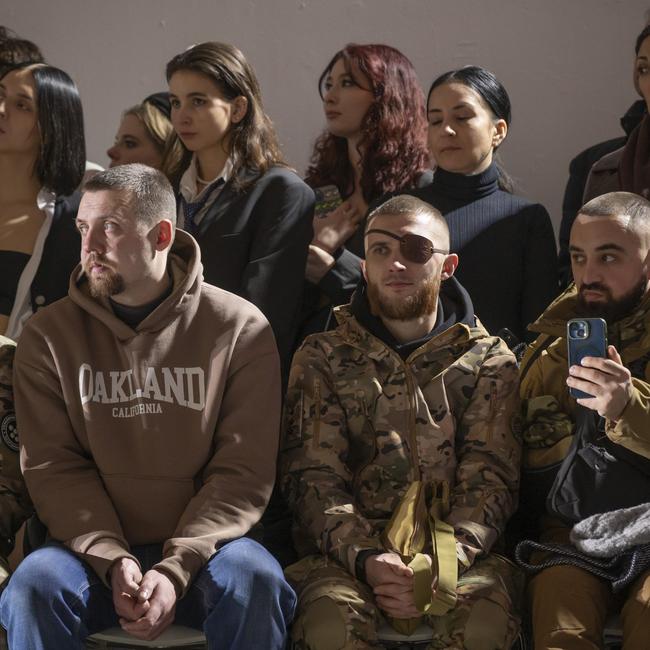Defiant Ukraine stages first fashion week since Russian invasion
It was a brief moment that encapsulated the spirit of defiance with which fashion week returned to Kyiv for its first winter show since the invasion.

It was a brief moment, hidden backstage of the catwalk, that encapsulated the spirit of defiance with which fashion week returned to Kyiv for its first winter show since the Russian invasion.
Two strangers, a leading Ukrainian designer and a soldier disfigured by Russian shrapnel, embraced in tears after the show she had dedicated to him. Scarred and missing an eye, Andriy Kulakevych posed with Nadya Dzyak in front of a backdrop usually reserved for flawless of models. “I wanted to show I’m grateful to our soldiers because they have given so much,” said Dzyak. “Their health, their bodies, their lives for our freedom.”
In the first year of the war, with millions fleeing Russia’s advance and others suffering the brutality of occupation, the fabric of Ukraine’s society risked being torn apart. This week’s return of Ukrainian Fashion Week illustrates the country’s resilience. International support has helped the capital return to some semblance of normality, despite Russia’s relentless assault on Ukraine’s energy infrastructure.
“It was difficult because every night we have these attacks, but I feel like it’s important for us to make this live from Kyiv,” said Ivan Frolov, the country’s most prominent designer, who has outfitted clients including Beyonce, Sam Smith and Jennifer Lopez.
“We’re showing to the world we still exist, that we can still do everything here, that Ukraine is still Ukraine.”

Frolov, 31, is conscription age and therefore requires official permission each time he leaves Ukraine to travel to Los Angeles for a celebrity fitting. Many of his most famous clients were providing tacit support to Ukraine through their fashion choices, he said.
“Each time a celebrity chooses our brand, it’s important because it gives us an opportunity to talk with the world through their audience. They give us the chance to spread information about what is happening here all over the world.”
Every Russian air raid pauses work while businesses send their employees to shelters. The bombing campaign has been so indiscriminate it has even affected Dyak’s producers of plisse, a type of fabric. Yet Vladimir Putin’s war on Ukrainian identity had inspired her to seek out ethnic motifs and produce a stronger Ukrainian collection than ever, she said.
Dzyak’s dresses were inspired by the circular swirls from Ukraine’s ancient Cucuteni-Trypillia culture, as embroidered by a Ukrainian refugee from Bakhmut, a city obliterated and then occupied by the Russians.

Regardless of the looming danger, the designers feel it is their duty to stay, to preserve Ukraine’s identity and contribute to its economy, they said.
“I have no depression, no defeat, I have only inspiration,” Dzyak said.
“Staying here to work is our fight, and we will continue fighting. Maybe it’s only Ukrainians that have such spirit, such determination?”
THE TIMES



To join the conversation, please log in. Don't have an account? Register
Join the conversation, you are commenting as Logout